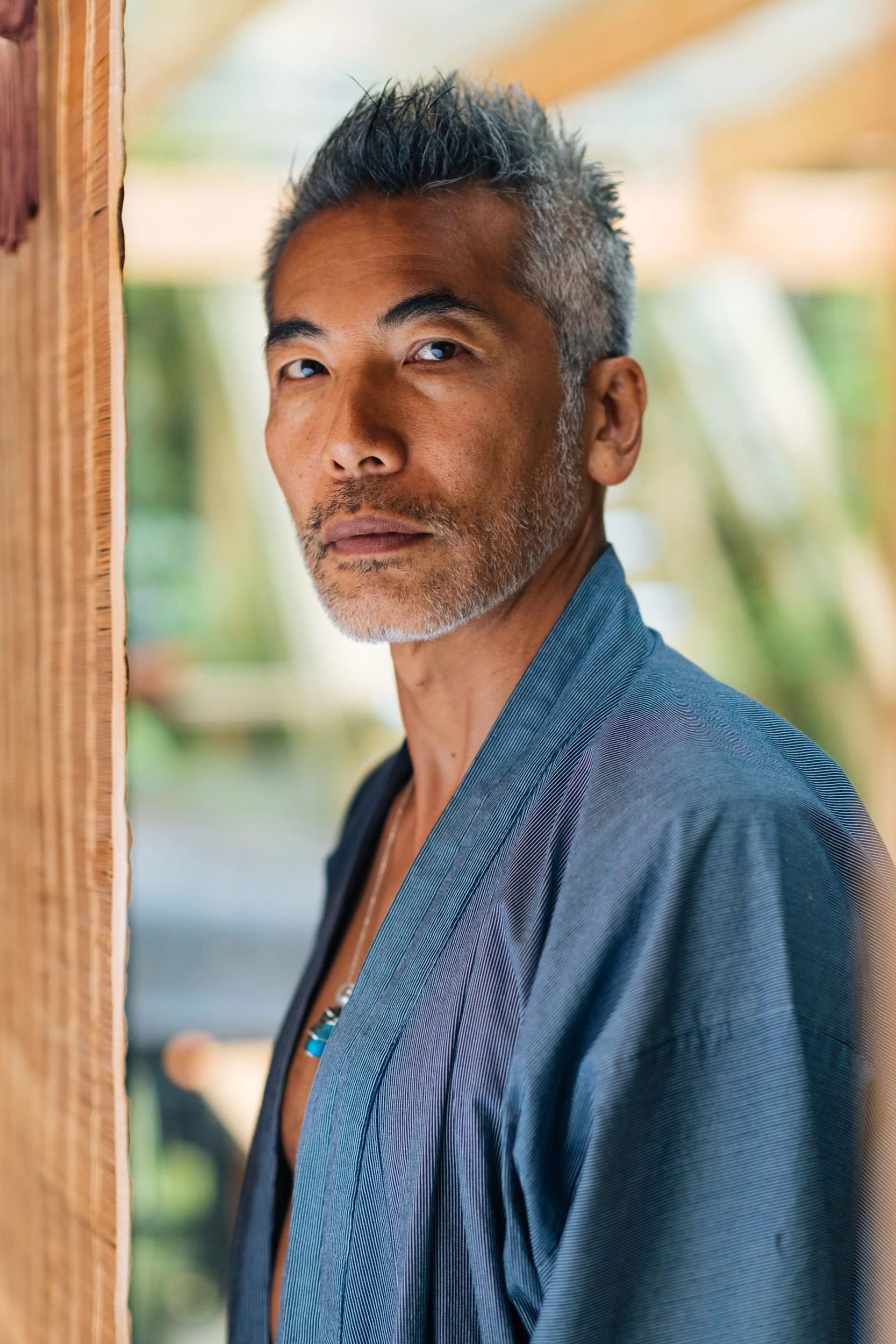In Yellow Fever, actor Hiro Kanagawa plays with hardboiled-detective tropes in 1970s Powell Street
The actor-playwright finds the comedy-mystery’s themes of racism all too timely
Hiro Kanagawa
The Firehall Arts Centre presents Yellow Fever from May 28 to June 12
AS A BUSY TV and film actor, Hiro Kanagawa has made a bit of a name for his detective characters—including his breakout role back in 1998 as Detective James Kai in Cold Squad. But none has been quite like the hard-boiled, Sam Spade-like Sam Shikaze, the role he takes on in the play Yellow Fever at the Firehall Arts Centre this month.
“I've played a lot of detectives in my day, but they tend to be the film or TV brand of realistic, very deadpan and understated,” says Kanagawa. “So it's a real pleasure to get to chew up the scenery a little bit and really put on the noir voice and the noir attitude.”
R.A. Shiomi’s comedy-mystery has been fun for Kanagawa, but the role also has him thinking a lot about identity, and specifically Asian identity. It’s a topic that he’s been acutely interested in as a Hollywood North actor, but also as an award-winning playwright of works like Indian Arm and his upcoming Forgiveness adaptation (set to hit the Arts Club’s Stanley Industrial Alliance Theatre and Theatre Calgary early next year). He’s been vocal about the issue on social media, too; in a recent missive marking the launch of Asian Heritage Month, he recounted witnessing “Asian heritage go from something that was not always accepted, respected or understood to something that is now often celebrated, admired and even envied.”
Speaking today over the phone on his way to auditions for Forgiveness, he says he enjoys how this new production of Yellow Fever digs at those ideas. In the play, set in and around 1970s Powell Street, his Shikaze investigates the disappearance of the enigmatic Cherry Blossom Queen, discovering a complex web of police corruption, political intrigue, and racism along the way.
Director Donna Spencer has chosen to stage this production as an old-style radio play, and Kanagawa likes the way that allows him to move between being a realistic actor and a character that puts a sly Japanese-Canadian spin on classic gum-shoe tropes.
“The audience is going to see us come onstage as ourselves and then become these characters, and I think there's an interesting idea being explored there—because when you think about it, all identity is constructed,” the veteran actor reflects. “All identity is performative. So here is a Japanese man in the 1970s putting on the identity of a hardboiled noir detective: that allows us to speak about what is ‘authentically’ a Japanese identity or what is an Asian identity.
“Especially in my line of work, in film and TV and theatre, very often roles will come up that ask me to speak an Asian language, be it Chinese or Korean or Japanese,” he continues. “Or in casting, there might be a requirement that you look fully Asian or half Asian or a quarter Asian. And so for a lot of people, there's this question of authenticity that comes up in an uncomfortable way. Like, am I authentically Asian if I don't speak the language of the homeland of my parents or grandparents? Or if I'm only half Asian? This is a conversation that is going on right now among Japanese Canadians and Asian Canadians. And this concept of the radio play allows us to address that in a way we wouldn't otherwise be able to.”
Equally timely is the dark current of racism that cuts through Shiomi’s lauded classic of Asian-Canadian theatre (one that went on to critical acclaim off-Broadway after its premiere in 1982). In the play, white supremacists have infiltrated the police force in an era when memories of Japanese-Canadian internment camps are still fresh and a new wave of Chinese immigrants is sparking xenophobia.
“In the 1970s, the idea that white supremacists would infiltrate the Vancouver police was kind of a joke—I mean he wrote the play as a comedy,” Kanagawa observes. “So today, we know for a fact it is not a joke. So it's kind of mind-boggling for us to be rehearsing this play and seeing all of the ways in which the issues have come back.
“You know, there's that saying that ‘History doesn't always repeat, but it rhymes,’” he adds. “As I rehearse this, I'm always reminded of that phrase.”
In fact, 30 years after its last staging at the Firehall Arts Centre, Yellow Fever feels more relevant than ever.
The production marks Kanagawa’s first stage performance since 2016, and his first return to the Firehall since Marie Clements's Burning Vision in 2002. In the intervening years, he’s gone on to an incredible diversity of roles in what seems like every production shot in Vancouver, from Smallville to Star Trek: Discovery to Bates Motel. He’s stayed busy right through the pandemic, with both screen productions and writing that’s included work on a Stratford Festival-Banff Playwrights Lab co-commission, Urashima, with collaborator Eric Coates.
But in many ways, this stage production feels like coming home—both in the theatre and in its surrounding Powell Street, or Paueru Gai, neighbourhood, that’s so steeped in Japanese-Canadian history.
“I’ve been in Vancouver for 30 years, and certainly the Firehall has been very important for my professional development, also as part of the Powell Street Festival, which I’ve performed in many times,” says the Sapporo-born star. “The Firehall was really a centre of multicultural arts before it was fashionable. I’ve been in so many performances and readings and plays at the Firehall over the years, and also, as an audience member, I’ve attended so many shows. When I moved to Vancouver in 1990, the Firehall really represented to me the place where people of colour and people of ethnic minorities could have their work taken seriously.”















